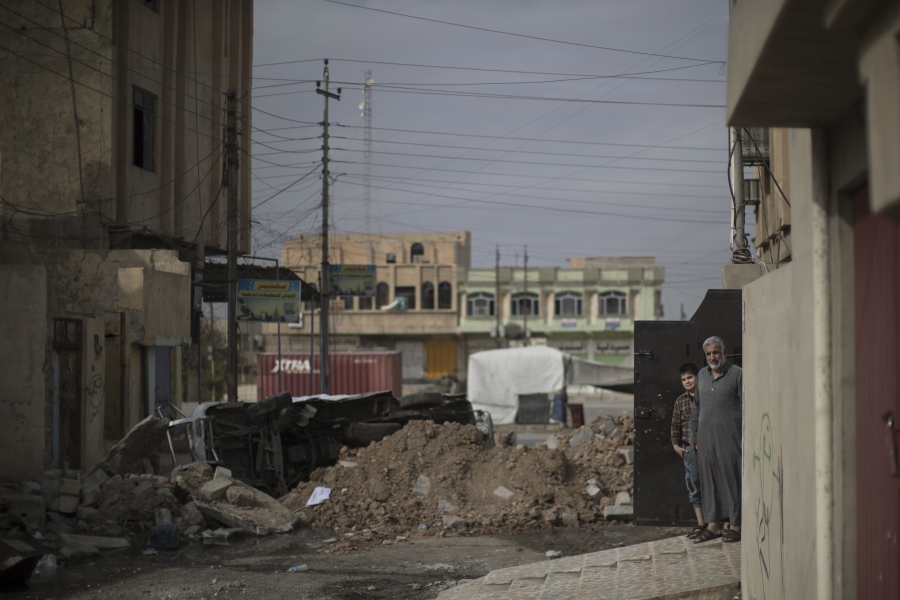MOSUL, Iraq — Explosions and gunfire rattled parts of eastern Mosul and Islamic State militants fired mortars from apartment windows Tuesday as Iraqi special forces waged fierce urban combat in the country’s second-largest city.
Hundreds of civilians filled the streets clamoring for food and cigarettes in recently retaken neighborhoods where supplies were running low. Some of the troops handed over their own rations.
Iraqi forces say they have largely cleared the neighborhoods of Zahra and Qadisiya in eastern Mosul after pushing into the area Nov. 4. The operation to retake the militant-held city began Oct. 17 and troops made swift progress before their advances slowed once they pushed into more densely populated areas.
Iraqi forces moving in from the south have maintained slow progress and remain more than 20 kilometers (12 miles) from central Mosul.



